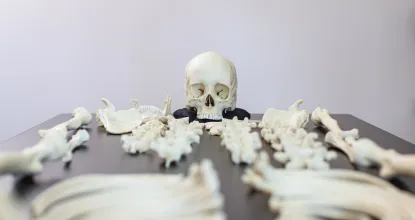Frequently Asked Questions
Q: What is Forensic Anthropology?
Q: What is Forensic Taphonomy?
Q: Who can donate my body to the Center for Forensic Science ?
Q: What would make me ineligible to donate my body to the Center for Forensic Science after my death?
A: The Center for Forensic Science cannot accept the donation of remains that are known to have certain communicable or infectious conditions. Donor bodies that have undergone organ/tissue donation and/or forensic autopsy are acceptable. All donations of human remains are evaluated on a case-by-case basis and it is the sole discretion of the Center for Forensic Anthropology staff to decide whether or not a donation will be accepted.
Q: Can my family visit my body at the FROST facility?
A: Once a donor has been made part of the permanent skeletal collection, arrangements may be made for family visitation at the indoor laboratory facility. Approvals for visitations at the laboratory will be made on a case-by-case basis. Visitation and tours at the outdoor facility are not permitted under any circumstances. A ceremony to honor our donors is held annually and families of the donors who have been brought to our facility over the previous year are invited to attend.
Q: What is the cost to my family if I donate my body to the Center for Forensic Science?
A: While there is no cost for donating a body to NMU Center for Forensic Science, there may be costs associated with a funeral director's services (death certificate, transportation, other paperwork). All fees associated with a funeral director's services are the responsibility of the donor. If the donor’s body is known to have an infectious or communicable condition and/or exceeds 250 lbs, the Center for Forensic Science can accept the body donation following cremation (as long as the remains have not gone through the pulverization process). Cremation costs would be the responsibility of the family.
Q: Can I make a financial donation to the Center for Forensic Science?
A: Yes. A financial donation can be made by visiting the Donation Page for more information.







